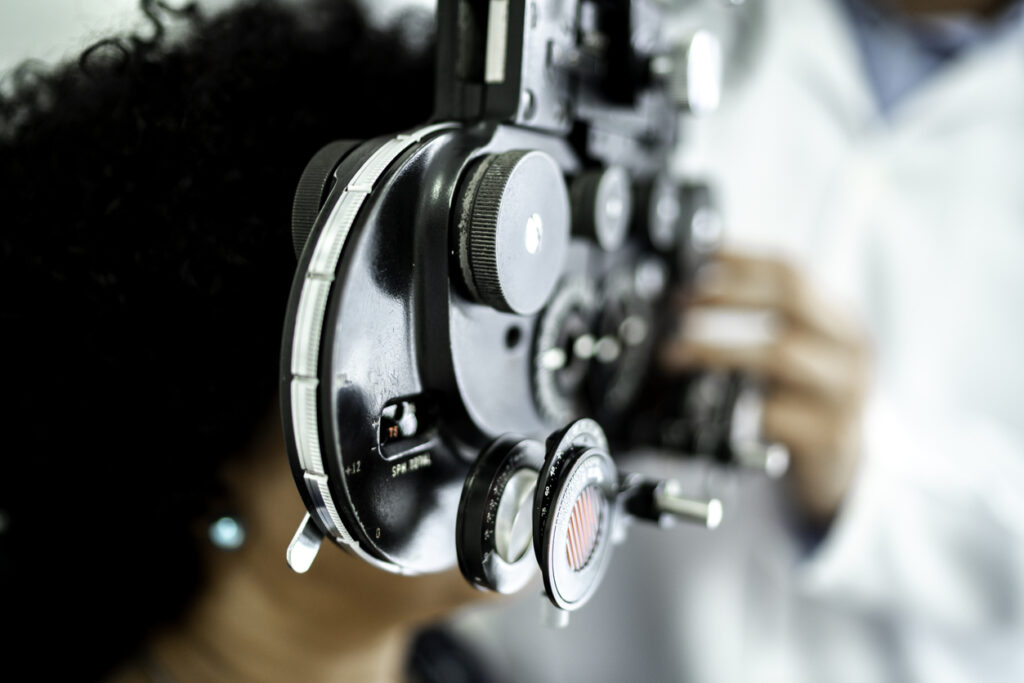Does Insurance Cover LASIK? The Update for 2024

Many of those weighing options for eye correction surgery naturally wonder: does insurance cover laser eye surgery procedures like LASIK, SMILE, ICL, PRK, or LASEK? The good news is some insurance policies do offer benefits that can help with the cost of vision correction surgery, but, as with most things, the details matter.
Does Insurance Cover LASIK?
That depends on your insurance provider. Some health insurance plans, unfortunately, deem LASIK and laser vision correction procedures elective — meaning not medically necessary. For this reason, health insurance companies can limit or deny coverage for vision correction surgery and generally offer benefits to cover some of the expenses related to glasses and contacts. It pays to read the fine print before relying on your traditional health plan. However, if you have a vision plan, that may be of some additional help. For example, the Government Employee Health Association, announced its 2024 plans for U.S. Federal employees, retired military members, and their dependents including discounts for vision correction procedures like LASIK.
Vision insurance plans, such as VSP or EyeMed, are slightly different from standard medical or health insurance; vision plans are designed to help patients with eye care, including vision correction devices like glasses and contacts. Depending on the plan, benefits may include additional services and savings for those who are interested in laser vision correction as an option.
How does insurance cover LASIK?
Some of the larger vision insurance carriers – including Aetna, Blue Cross-Blue Shield, Cigna, UnitedHealth, and Humana – offer specific laser vision correction benefits including:
- Discounts on laser vision correction procedures, typically in the 15-20% range.
- Higher discounts of up to 50% on procedures performed by in-network surgeons
- Frame benefits for non-prescription sunglasses after vision correction surgery
For some patients, having some assistance from insurance in paying for LASIK makes a big difference. Once you know if your insurance offers some benefits for laser vision correction, you can then plan on what part of the cost you will need to cover.
How to pay for LASIK without insurance?
- Financing Options through surgical practices
- Flexible Spending Arrangements (FSA) or Health Savings Accounts (HSA)
- Bonuses, Gifts, Refunds, and Financial Windfalls
- Check with Human Resources
- Reach out to Your Insurance Provider
Fortunately, there are other options for managing the cost of LASIK. Here are a few you can explore:
1. Financing Options
Most surgical practices offer financing plans to help patients pay their portion of the cost of a procedure. There are very affordable interest rates and payment plans for those who qualify. Some patients choose to use their low or no-interest credit cards – particularly those with reward points or miles they can use for travel or other purchases.
2. Flexible Spending Arrangements (FSA) or Health Savings Accounts (HSA)
Some employers offer access to an FSA or HSA to allow employees to set aside tax-free money that can later be used for a qualified procedure such as LASIK. For 2023, the U.S. Internal Revenue Service currently caps contributions to health savings accounts at $3,850 for an individual HSA or up to $7,750 for a family HSA plan. The IRS limits the pre-tax contributions to an FSA for 2023 to $3,050 for the tax year. Check with your benefits manager for details.
3. Bonuses, Gifts, and Refunds
Did you get a stimulus check from the 2020 CARES Act? It is a great example of an unexpected financial windfall. Bonuses from your existing job or a signing bonus from a new one, cash gifts, and tax refunds are other examples. If laser vision correction is a priority for you, these windfalls are a great way to help you make it a reality.
4. Check-in with Human Resources
The person in charge of benefits at your work, typically the human resource manager, is a valuable connection for you to make. They are likely to be able to answer the question – does insurance cover LASIK – in a way that is customized to you and your plan? They may also be able to point you to other job benefits that can help you pay for LASIK such as FSAs and HSAs.
5. Reach out to Your Insurance Provider
If you don’t have access to a benefits manager at work, take the time to reach out and contact your insurance provider directly. In addition to questions about benefits and coverage for laser vision correction, ask if your ophthalmologist is a preferred or network provider for your plan.
Insurance can help with the cost of LASIK with benefits and savings. Figuring out the specifics of what your plan does and doesn’t cover is important, but not as important as finding out if you are a good candidate for laser vision correction in the first place.
It is important for those considering LASIK or other vision correction procedures like PRK, ICL, or SMILE, to have a consultation with an ophthalmologist who specializes in vision correction procedures. This consultation includes a complete exam to evaluate the health of the eyes and measure vision function to determine if a laser vision correction procedure is recommended. Once you know you are a good candidate for a procedure, and specifically what procedure or procedures are recommended, then a more informed discussion about the related costs and potential for coverage can occur.
You can learn more about finding ways to pay for LASIK, but your first step should be choosing a LASIK surgeon to help you decide if laser vision correction is right for you.




